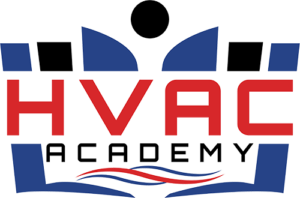In today’s competitive job market, having the right qualifications can significantly boost your career prospects. For those in the heating, ventilation, and air conditioning (HVAC) industry, certification and specialized training are critical components of success. HVAC systems play a crucial role in both residential and commercial buildings, making skilled technicians essential. Earning HVAC certification and undergoing comprehensive training not only enhances your skills but also opens doors to more job opportunities, better pay, and long-term career growth. Here’s why HVAC certification and training are essential for your career.
Enhances Your Skills and Knowledge
HVAC certification programs are designed to ensure that technicians possess a thorough understanding of heating, cooling, ventilation, and refrigeration systems. Certification courses cover essential topics such as system installation, maintenance, and troubleshooting, allowing you to build a solid foundation of technical skills.
Why It’s Important:
- HVAC technology is constantly evolving, with energy-efficient systems and new regulations shaping the industry. Proper training keeps you updated on the latest equipment and techniques.
- Certification helps you master complex tasks like electrical systems, refrigerant handling, and mechanical systems that are part of HVAC work.
Improves Job Prospects
One of the most significant benefits of HVAC certification is that it makes you more attractive to potential employers. Many companies, especially those offering commercial HVAC services, prefer to hire certified technicians because they’re proven to have a higher level of skill and competence.
Why It’s Important:
- With certification, you’re better positioned to land jobs with reputable HVAC companies, government agencies, or large construction firms.
- Certified HVAC technicians are often given preference during the hiring process, especially in competitive markets.
- You can also take on more specialized roles such as system designer or installation supervisor, leading to career advancement.
Higher Earning Potential
Certified HVAC professionals tend to earn more than their non-certified counterparts. Employers are willing to pay a premium for technicians who have demonstrated expertise in the field, as they require less on-the-job training and are more capable of handling complex projects.
Why It’s Important:
- HVAC certification can significantly boost your starting salary and make you eligible for higher-paying positions.
- Advanced certifications, such as those for handling specific systems like geothermal or solar-powered HVAC systems, can further increase your earning potential.
- The investment in training and certification pays off over time with better job security and higher wages.
Expands Career Opportunities
HVAC certification opens up a wide range of career paths within the industry. Whether you want to specialize in residential systems, work on commercial installations, or even start your own HVAC business, certification helps you expand your options.
Why It’s Important:
- Certified technicians can pursue more specialized career paths, including system design, sales, or teaching HVAC courses.
- You’ll have the credentials needed to work in various environments, from residential homes to large-scale commercial buildings.
- Certification allows you to be flexible, moving from general HVAC technician roles to niche fields such as energy efficiency consulting or refrigeration system management.
Boosts Professional Credibility
Having HVAC certification signals to employers, clients, and peers that you are serious about your profession and have met industry standards. It can increase your credibility and trustworthiness in the eyes of customers and business owners.
Why It’s Important:
- Many clients prefer to work with certified professionals because they know the job will be done right the first time.
- Certification provides a competitive edge if you’re planning to start your own HVAC business, as customers are more likely to hire a certified contractor over a non-certified one.
- It allows you to gain membership in professional organizations, such as the North American Technician Excellence (NATE), which can help you network and advance in your career.
Compliance with Industry Regulations
In the HVAC field, certain certifications are legally required to handle specific materials or equipment, such as refrigerants. Training programs ensure that technicians are not only knowledgeable but also compliant with state and federal laws, helping you avoid potential legal issues down the line.
Why It’s Important:
- The U.S. Environmental Protection Agency (EPA) requires technicians to be certified in refrigerant handling, making it mandatory for career advancement.
- Certification helps ensure you meet safety standards and legal regulations, protecting you from liability and fines.
- Being compliant with regulations also makes you a more desirable candidate for top companies that prioritize adherence to safety and environmental laws.
Long-Term Career Growth
HVAC is a growing field with increasing demand for skilled technicians as buildings become more energy-efficient and regulations around environmental impact tighten. Certification and continuous training ensure you remain relevant in the industry and allow for long-term career growth.
Why It’s Important:
- As HVAC systems become more sophisticated, technicians with advanced training will be in higher demand.
- Continuing education opportunities and advanced certifications allow you to climb the career ladder, potentially moving into supervisory or management roles.
- As the industry shifts toward green energy solutions, certified HVAC professionals with knowledge of eco-friendly systems will have better long-term career stability.
Final Thoughts
Investing in HVAC certification and training is one of the most effective ways to secure your future in this growing industry. From improved job prospects and higher earnings to professional credibility and long-term growth, the benefits of certification are undeniable. Whether you’re just starting out or looking to advance your career, obtaining the right certifications can set you on the path to success in the HVAC field.
Whether they specialize in maintenance, installation or servicing in residential, commercial, or industrial (or all three) systems,
HVAC Technicians perform their work on-site in a wide variety of settings. Contact us.







Leave A Comment